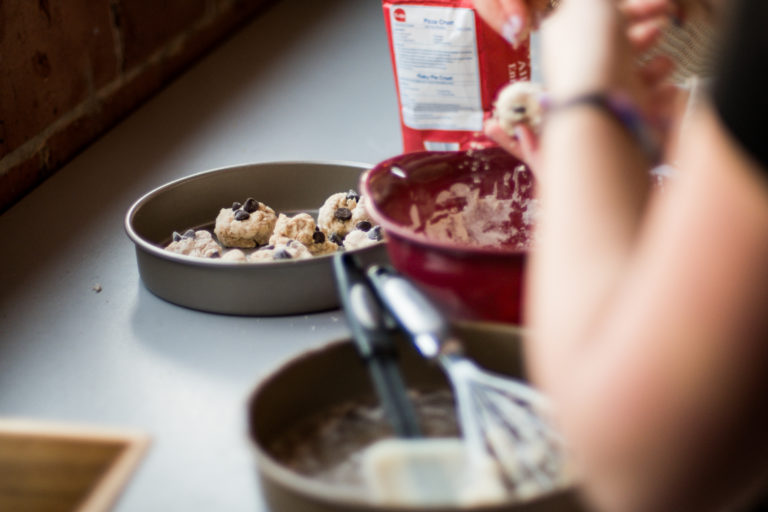
Do you need Shabbat dinner inspiration? For their final project our Amplifying Israel teen fellows for February, Lulu Rosenberg and Shaked Nitka, created a joint cookbook of Shabbat dinner recipes:
“We were able to show how even thousands of miles away, we all share the connection of our Judaism and especially through our Shabbat dinners and meals! We hope you enjoy seeing our recipes and that you might even try them out!” Shaked & Lulu
Shaked’s Recipes from Israel!
Oven-baked rice with chestnuts and cashews

Ingredients:
★ 2 cups of rice
★ 2 packs of chestnuts cut into cubes
★ Cashew
★ Chopped medium onion
★ 2 of tablespoons of soy sauce
★ 2 of tablespoons of date honey
★ 1/4 cup of oil
★ 4 cups of water
Instruction:
- Preheat the oven to 200 degrees
- Put the cashew and chestnut onion rice in a baking pan and mix
- Add the soy sauce and date honey and mix
- Add the oil and mix.
- Add the hot water and mix
- Put in the oven for 1 hour
- After baking, use a fork and gently open the rice
- And the rice is ready😋
Pita with za’atar
Ingredients:
★ 1 kg flour
★ 700 m”l of cold water
★ 1 teaspoon of dried yeast
★ 15 grams of salt
★ A little flour to flour the surface
★ Olive oil to grease the bowl
★ Za’atar and olive oil mixed together
Instruction:
- Put water, salt, and yeast in the mixer bowl and stir. Turn on the mixer and add the flour gradually
- Grease a bowl with a little olive oil and transfer the dough to it. Cover and soak overnight in the fridge.
- Remove the bowl from the fridge and bring it to room temperature
- Divide the dough into eight equal balls and place in a mold And let the dough apple for 2 hours.
- Prepare a work surface and sprinkle flour generously on it.
- Flatten the dough ball with your hands
- Spread as a tablespoon of the za’atar and oil mixture on each pita
- Bake in the tabun at a temperature of about 500 degrees for 2 minutes
- Bon appetit😋
Sfinj

Ingredients:
★ 1 kg white flour
★ Fifty grams of fresh yeast
★ 1/2 cup white sugar
★ 1/2 teaspoon of salt
★ 800 m”l water
★ oil for frying
Instruction:
- In a large bowl mix together flour and yeast
- Add sugar and salt and mix
- Add half the amount of water and put the dough for a minute
- Gradually add the remaining water and continue kneading for another minute
- Cover the bowl and wait until the dough is twice as large
- Mix the dough with your hands to remove the air Cover and wait again
- Make a little ball out of the dough and make a hole in the middle of it
- Fry the ball in the oil until it gets a golden color and dip in sugar
- Continue throughout the rest of the dough
- Bon appetit!
Lulu’s Recipes from Atlanta!
Shabbat Chicken
Pound chicken flat and dip it in Jason’s seasoned bread crumbs until both sides are covered and then saute in olive oil until brown, flip, and cook until brown again (chicken will not be fully cooked at this point). Put the chicken into a baking dish, (we use a 9×13). Pour chicken soup stock to cover chicken (typically 1-2 cups is enough to cover- we use the parve Better than Bouillon Chicken Flavor). Then, add 2 cups of mushrooms on top (drained), cover and cook at 350 for at least 40 minutes. The longer you cook it, the more tender the chicken becomes!
This is a Shabbat staple in my house. This chicken always reminds me of warm meals in my house with my family and friends!
Lemon Garlic Chicken and Pasta
4 chicken breasts
4 tablespoons olive oil
2 lemons- 1 thinly sliced and 1 juiced
3-4 cloves of garlic minced
1 teaspoon kosher salt
Ground black pepper to taste
Preheat the oven to 450 degrees F. Coat a large baking dish or skillet with 1 tablespoon of olive oil. Arrange lemon slices at the bottom of the dish or skillet. In a large bowl, combine the remaining oil, lemon juice, garlic, salt, and pepper and toss to coat. Place the chicken in the same bowl with the olive oil mixture and coat thoroughly and then place in the dish or skillet. Pour any remaining olive oil mixture over the chicken. You can also add a lemon slice on top each piece if you like. Roast covered for skinless or uncovered with skin for 50 minutes.
While chicken is cooking, cook a packet of whole wheat spaghetti per the instructions on the box. Save 1 cup of the pasta water before draining. Add the water back to drained pasta, drizzle olive oil on it and also add a few pinches of pasta spices- (we like dried oregano, dried basil, dried thyme and garlic).
Put pasta on a plate and top with chicken and a lemon spice!
Rugelach
½ cup + 2 teaspoons granulated sugar
1 package of active dry yeast
½ cup of warm water
¼ cup of margarine
1 teaspoon of salt
2 eggs, beaten
4 cups of all purpose flour
In a large bowl, stir 2 teaspoons of sugar with ¼ cup of warm water until dissolved. Sprinkle in yeast; let stand until frothy (about 10 minutes). While you are waiting, heat remaining water in a small saucepan, add the rest of the sugar, margarine and salt until the margarine is melted. Let cool until lukewarm and stir into yeast mixture. Add the beaten eggs. Then stir in 3 and ¼ cups of the flour, about 1 cup at a time. Knead until smooth on a lightly floured surface- about 10 minutes or so. Add extra flour if the dough is too sticky. Transfer to a large bowl greased with oil and turn dough to grease all over. Cover with plastic wrap; let rinse in a warm draft-free place until doubled in bulk- about 1- 1 and ½ hours.
Roll out the dough, cover lightly with oil, sprinkle cinnamon-sugar or sweetened cocoa. Cut into triangles and roll from large end into peak of triangle. You can brush with beaten egg mixed with water. Let rise again for 45 minutes. Bake at 350 degrees F for 10-15 minutes until the rugelach are medium brown.
This is my great grandmother and Bubbie’s recipe- it is my favorite!

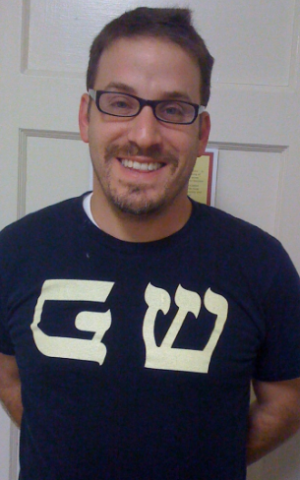
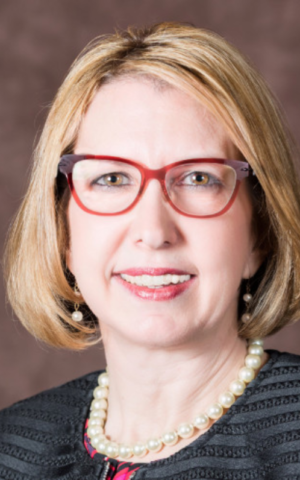
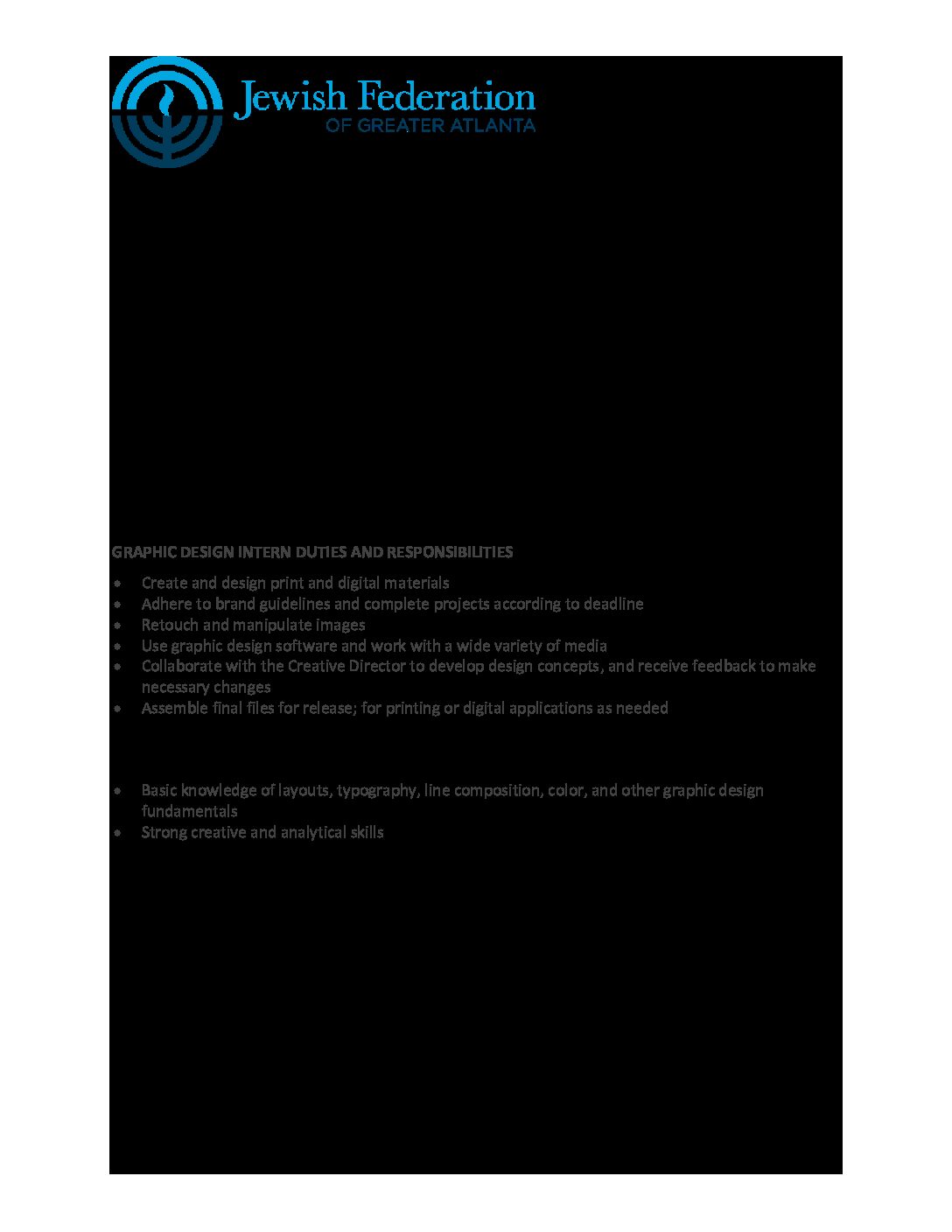
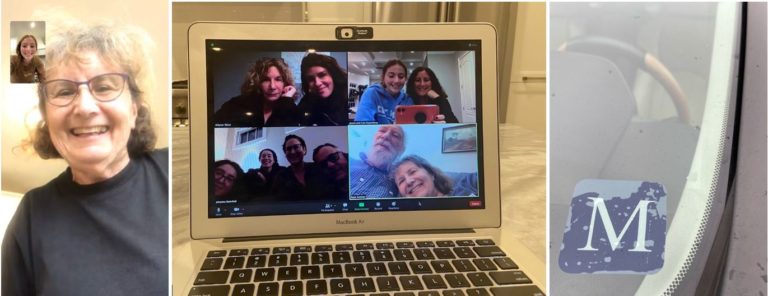
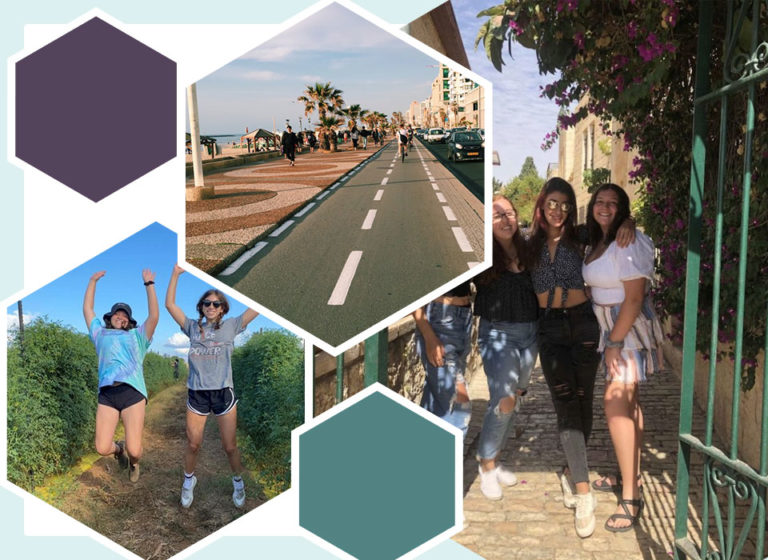

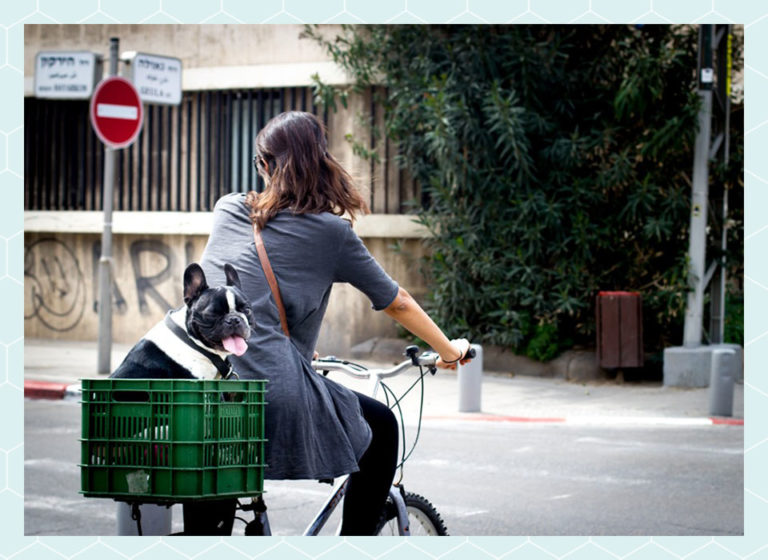

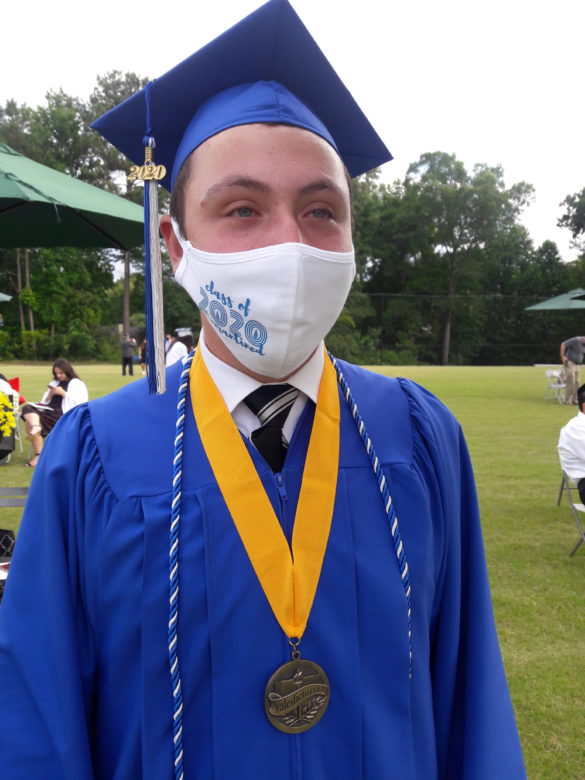

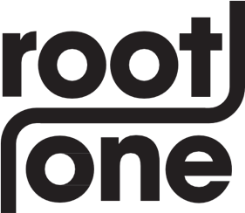

 Five years ago, Maddie Cook traveled to Israel with Birthright Israel Atlanta. Her encounter with Israel came full circle when she became a leader on our 2019 Summer Birthright trip. Curiosity about Israel drove Maddie to sign up for her first trip. Creating community was her motivation to lead one.
Five years ago, Maddie Cook traveled to Israel with Birthright Israel Atlanta. Her encounter with Israel came full circle when she became a leader on our 2019 Summer Birthright trip. Curiosity about Israel drove Maddie to sign up for her first trip. Creating community was her motivation to lead one.


